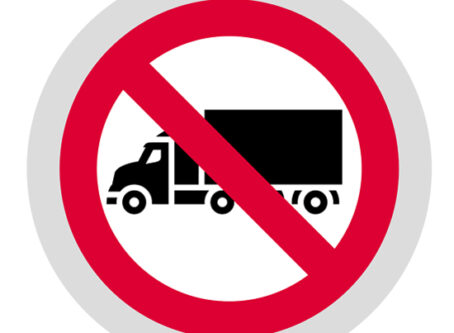Virginia General Assembly introduces toll legislation; ATA threatens legal action
Both the Virginia House and Senate have introduced identical legislation regarding toll roads to fund the Interstate 81 Corridor Improvement Plan. The Alliance for Toll-Free Interstates and the American Trucking Associations have weighed in. With the latter hinting at possible legal action, Virginia may join a growing list of states fighting toll-related lawsuits.
One week after, Gov. Ralph Northam announced a draft legislative proposal concerning funding for the I-81 Corridor Improvement Plan, the General Assembly’s House and Senate formally introduced legislation on Tuesday, Jan. 15.
Senate and House bills
The Senate’s SB1716 and its identical version in the House, HB2718, authorizes the Commonwealth Transportation Board to impose a toll on Interstate 81. Revenue will go to the Interstate 81 Corridor Improvement Fund, also established in the bills. Money in that fund will be used for “capital, operating, tolling operations and maintenance, and other improvement costs identified in an Interstate 81 Corridor Improvement Plan adopted by the board.”
According to both bills, the board will have the authority to toll the entire length of I-81 in the state. Class 6 or higher vehicles will be tolled at a rate not higher than 17 cents per mile. Tolls for all other vehicles will not exceed two-thirds of the Class 6 and higher rate.
Tolls on bridges will follow certain restrictions. Class 6 or higher vehicles will not have a toll rate to exceed a total of $55.25 for using all tolled bridges along the entire length of I-81 in a single direction. Again, tolls on other vehicles will have similar rates no more than two-thirds of the rate of heavier vehicles.
If the board decides to establish a toll, it is directed to offer an annual pass to commuters. An annual pass will allow commuters in passenger vehicles to use I-81 with a 100 percent discount. The cost per year will not exceed the cost of one full-length roundtrip. With the annual pass, passenger get unlimited use of I-81 without paying tolls.
Toll rates and annual pass costs can be adjusted no more than every eight years. Increases cannot exceed the increase in the U.S. Average Consumer Price Index. However, the transportation board can adjust toll rates if revenue is considered insufficient to cover existing debt related to the tolls. In that case, tolls can be raised enough to cover that debt.
ATFI and ATA weigh in
The Alliance for Toll-Free Interstates and the American Trucking Associations have expressed their disapproval of the bills. ATFI said tolls will have negative consequences on the entire state of Virginia with increased shipping costs of goods, traffic diverted to local roads, suppressed consumer activity and a double-tax on businesses.
“We urge the Virginia General Assembly to oppose SB1716 and HB2718,” ATFI said in a statement. ‘We need every dollar generated to go toward improving the interstate, not spending it on collecting, administering and enforcing tolls. According to the Congressional Research Service, ‘even with extensive use of electronic tolling, collecting highway tolls costs between 8 percent and 11 percent of the amount collected.’ SB1716 simply props up a fiscally irresponsible government bureaucracy to waste taxpayers’ money on toll administration, enforcement and collection.”
Basis for legal action
In a letter to Gov. Northam, ATA warned the governor of the legal ramifications of the proposed tolling. ATA claims all proposed tolling options favor in-state motorists at the expense of out-of-state motorists. Considering it a burden on interstate commerce, ATA argues the tolls are unconstitutional.
More specifically, ATA states that the car-only annual pass is “unlawful under the U.S. Constitution.” Citing U.S. Supreme Court precedent regarding the Commerce Clause, ATA explains that any transportation user fee must meet a three-prong test:
- Based on some fair approximation of use of the facilities.
- Not excessive in relation to the benefits conferred.
- Does not discriminate against interstate commerce.
ATA argues that by denying truckers a similar one-time fee, the toll program is not based on fair approximation of use.
“On the contrary, for a passenger car availing itself of the annual pass option, its user fees will bear no relationship whatsoever to its use of the tolled roads. Trucks, by contrast, will have no choice but to pay on a trip-by-trip basis,” ATA said in the letter.
Regarding the “benefits conferred” test, ATA claims the annual pass renders the tolls excessive in relation to benefits conferred. If an annual pass is appropriate for passenger vehicles, ATA argued, then charging truckers per trip is excessive.
Citing another Supreme Court case, ATA pointed out that highway user fees “discriminate against out-of-state vehicles when they predictably subject them to a much higher charge per mile travelled in the State.”
In its closing statement, ATA alluded to future legal action if legislation is passed:
“We encourage you and the Assembly to think carefully about these issues before Virginia takes any further steps in the direction it appears to be heading, and to bear in mind that the auto-only annual pass option will be vulnerable to a legal challenge if it moves forward.”









